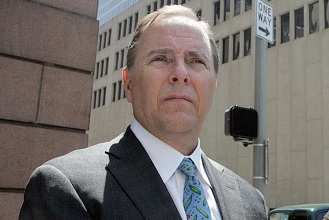Eastland Law Blog

Honest Services--Whats Left? : US v. Skilling
The Supreme Court in Skilling v. United States, 130 S.Ct. 2896, 2932-33 (2010) held that the 18 U.S.C. § 1346 honest services statute only encompasses mail and wire fraud “bribery and kickback” schemes to defraud. The Supreme Court specifically rejected the government’s attempt to apply the statute to schemes involving “undisclosed self-dealing by a public official or private employee.” Id. at 2932. The Supreme Court “conclude[d] that a reasonable construction of § 1346 must exclude this amorphous category of cases.” Id. (emphasis added).
Importantly, there are many prisoners convicted of honest services schemes involving undisclosed self-dealing that have not acted to secure the freedom they are entitled to under Skilling by moving to vacate their honest services convictions under 28 U.S.C. § 2255. Similarly, there are many individuals who have already served their sentences for honest services convictions involving undisclosed self-dealing that are eligible to have the felony convictions vacated through error coram nobis proceedings.
In fact, the Assistant Attorney General Lanny Breuer of the Department of Justice Criminal Division testified to Congress after Skilling that hundreds of defendants have been convicted over the years for the now invalid honest services charges involving undisclosed self-dealing:
For many decades, both before the McNally decision and under § 1346, the two core forms of honest services fraud recognized by the courts remained the same: first, schemes involving bribery and kickback, and, second, schemes involving undisclosed self-dealing. In Skilling, the Supreme Court eliminated the entire second category of schemes from the reach of Section 1346, holding the statute covers only bribery and kickback schemes, and not schemes involving undisclosed self-dealing.
….
In the twenty-two years since the enactment of Section 1346, the Department of Justice has used the statute extensively to prosecute fraud and corruption in the public and private sectors. Hundreds of prominent defendants and public officials have been convicted using this statute, under both core theories of honest services fraud.
See September 28, 2010, Testimony of Department of Justice Criminal Division Assistant Attorney General Lanny A. Breuer Before United States Senate Committee on the Judiciary Hearing Entitled “Honest Services Fraud.”
Recently, the Department of Justice also suggested that it was willing to consider agreeing to vacate honest services convictions brought to its attention on a case-by-case basis if the unique circumstances of the case indicate the convictions are now invalid under Skilling. In responding to a letter by Eastland Law Offices, PLLC seeking the Department’s policy on addressing honest services convictions that are now invalid after Skilling, the Justice Department stated:
As you are aware, each defendant convicted of honest services fraud has an opportunity to bring any concerns to the attention of the court. The Department of Justice has provided detailed guidance to prosecutors on how to address the issues presented by the Skilling decision in individual situations, depending on whether a matter is under investigation, indicted but not yet tried, or already prosecuted to conviction at the time of the Skilling opinion.
Importantly, the Justice Department also indicated:
Since each individual matter presents its own unique set of circumstances, the Department will continue to review each individual case as it is brought to our attention by affected parties and their individual attorneys.
If you are representing a specific affected party by the Skilling opinion, please feel free to contact the prosecuting attorney to convey your concerns on behalf of your client.
See attached March 8, 2011, Department of Justice Skilling Policy Response; attached January 26, 2011, Skilling Policy Request by Eastland Law Offices, PLLC.
Accordingly, there are hundreds of parties who have been convicted of honest services fraud that should be very proactive in having their attorneys assess whether they maybe eligible for having their convictions vacated under Skilling. Vacating such convictions also applies to alleged conspiracy and aiding and abetting honest services undisclosed self-dealing schemes, as well as RICO convictions based upon undisclosed self-dealing honest services RICO predicate act schemes.
Monday, August 15, 2011 by Hiram C. Eastland, Jr.

